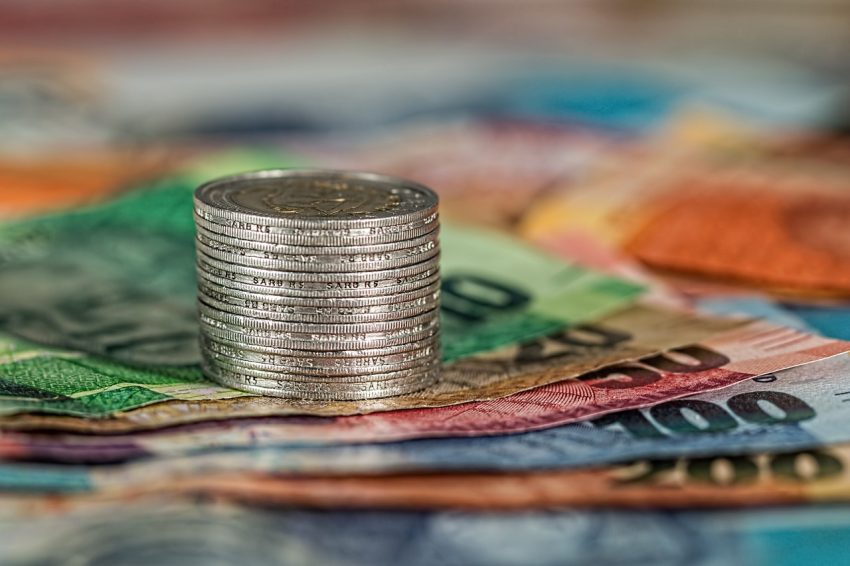CAF and Spain Gather Finance Ministers from the EU and Latin America and the Caribbean to Discuss Regional Solutions to Global Economic Challenges

Between September 11 – September 15, CAF, the development bank of Latin America and the Caribbean, and the country of Spain organized a series of meetings to promote economic relations and solutions within the region. The events highlighted the participation of local finance ministers and focused on topics such as fostering commercial and financial bonds, green transition, digital transformation, and human development.
The Rationale
The goal behind the September 11 – September 15 series of events was to advance the relations between the European Union and the region of Latin America and the Caribbean. The meetings also aimed to channel European investment plans to the current reality of the Latin American and Caribbean countries. The Global Gateway serves as the tool to meet this end.
What is the Global Gateway?
The Global Gateway Initiative is a project by the European Commission started by Ursula von der Leyen. It represents the EU’s strategy to invest in infrastructure projects and develop viable economic partnerships. The Global Gateway functions according to a set framework of principles aimed at securing global partners to counter the Chinese Belt and Road Initiative. The project’s budget is estimated at EUR 300 billion.
Why Spain?
The initiative to gather finance ministers from the EU and Latin America and the Caribbean comes as a result of a joint effort of CAF and Spain. The latter currently holds the presidency over the EU, hence its leading role within the project. Spain’s capital, Madrid, and Santiago de Compostela hosted the series of September events.
The Meetings and Participants
The highlight of the start of CAF and Spain’s summit was the September 12 presentation of the new edition of the Economy and Development Report. Its current title is “Global challenges, regional solutions: Latin America and the Caribbean facing the climate and biodiversity crisis.”
The presentation took place at the IE University in Madrid. Some of the topics discussed included adaptation and mitigation to address climate change and biodiversity and ecosystem preservation.
On the following day, September 13, Casa de America in Madrid hosted the CAF conference “Global challenges, regional solutions: Latin America and the Caribbean facing the climate and biodiversity crisis.” The event featured Sergio Díaz-Granados, Executive President of CAF, and Nadia Calviño, Spain’s First Vice President and Minister of Economy and Digital Transformation.
The September 13 CAF conference also gave the floor to other prominent participants including the Colombian celebrity singer-songwriter Carlos Vives. Teresa Ribera, Third Vice President and Minister of Ecological Transition and the Demographic Challenge, Azucena Arbeleche, Minister of Economy and Finance, Uruguay, and Ricardo Bonilla, Minister of Finance and Public Credit, Colombia were among the country officials who took part in the event, too.
Calviño also joined the September 14 CAF board meeting. The event took place in Santiago de Compostela. Among other goals on its agenda, the CAF board meeting largely focused on approving credit operations to assist the sustainable development of the countries from the region of Latin America and the Caribbean.
Finally, on September 15 Santiago de Compostela also hosted the first meeting between the Economic and Financial Affairs Council configuration (Ecofin) and the Community of Latin American and Caribbean States (CELAC). This event was the focal point in discussing regional sustainable development, green economy transition, digitalization, and human development.
What are Ecofin and CELAC?
Ecofin is the EU’s structure which is responsible for developing and carrying out the Union’s policy in the areas of economics, taxation, and financial services regulation. Its governing body is the Ecofin Council. The latter consists of economic and finance ministers from the EU member states as well as relevant European Commissioners.
Ecofin meets once per month. Additionally, it holds specific sessions dedicated to preparing the EU’s annual budget. These are attended by national budget ministers and the European Commissioner for Financial Programming and Budget.
CELAC is a regional bloc of states from Latin America and the Caribbean, which came into existence in 2010. It has 33 member countries. These include Antigua and Barbuda, Argentina, the Bahamas, Barbados, Belize, Bolivia, Brazil, Chile, Colombia, Costa Rica, Cuba, the Dominican Republic, Ecuador, El Salvador, St. Kitts and Nevis, Grenada, Guatemala, Guyana, Haiti, Honduras, Jamaica, the Commonwealth of Dominica, Mexico, Nicaragua, Panama, Paraguay, Peru, St. Vincent and the Grenadines, St. Lucia, Suriname, Trinidad and Tobago, Uruguay and Venezuela.
What Is the Significance of the Recent Events?
The recent joint endeavor of CAF and Spain to evolve the ties between Europe and Latin America and the Caribbean demonstrates the desire to address regional challenges in various areas by applying global experience. This is a process that will take decades and operates on the principles of peace, cooperation, sustainability, and trade. The fact that 60 finance ministers from various continents took part represents the strong commitment to creating effective strategies for regional development and sustainable progress.